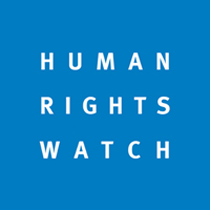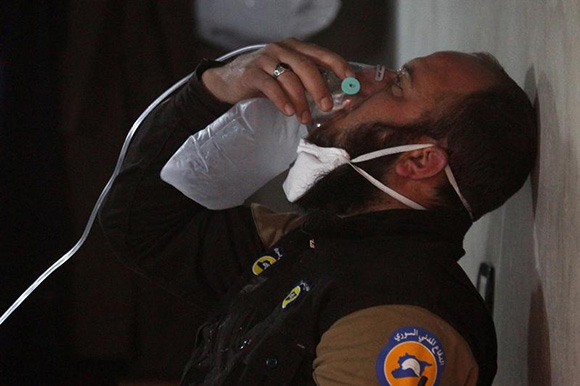by Yesim Usluca
Impunity Watch Reporter, Middle East
DAMASCUS, Syria — On Tuesday, April 4th, a suspected chemical attack on the Syrian town of Khan Sheikhoun in the province of Idlib killed and injured hundreds of civilians, including several children.

A photographer for a Media Center in Idlib, Mr. Hussein Kayal, stated that he was woken up by the sound of a bomb blast at approximately 6:30 a.m. Upon rushing to the attack site, he noted that there had been no smell. He indicated that he walked around the town and saw “entire families inside their homes, lying on the floor, eyes wide open and unable to move.” He further added that “[t]heir pupils were constricted.” A Syrian man reported that residents were still in their beds at the time the warplanes struck as it was still early in the morning. He stated that he lost his niece, his niece’s husband and their one-year old daughter in the attack.
The head of a Syrian ambulance service, Mr. Mohammed Rasoul, stated that emergency responders found “people choking in the streets.” He noted that the situation is “very bad” and that most of the civilians suffering as a result of the attack were children. Footage released from the site showed EMTs attempting to intubate an unconscious male “stripped down to his underwear[,]” as well as a young girl “foaming at the mouth[.]”
A local media activist, Mr. Mohammed Hassoun, stated that there were eighteen critical cases. He added that the injured civilians arrived unconscious, “had seizures,” and “bled from the nose and mouth” after receiving oxygen treatment. Mr. Hassoun noted that the doctors suspect the chemical agent was made up of more than one gas as chlorine is not known to cause convulsions of the type suffered by those injured in the attack.
International news sources reported that a hospital in the immediate vicinity of the affected area was struck with missiles soon after the suspected chemical attack. A local doctor who received three victims stated that they all had “narrow, pinpoint pupils that did not respond to light.” Breathing difficulties, pinpoint pupils and foaming at the mouth are all symptoms typically associated with exposure to toxic gas. A media activist for the Aleppo Media Center, Mr. Mohammed Alshagel, reported that the hospital had been filled with injured men, women and children, along with a strong smell of chlorine. He stated that the injured individuals had “heavy choking symptoms” and that some had died minutes after arriving at the hospital. Mr. Alshagel added that the hospital had been attacked shortly after he left.
The Syrian Observatory for Human Rights stated that fifty-eight civilians, including eleven children, had been killed in the suspected chemical attack. The rights group later stated that the death toll was expected to rise, whereas the Syrian medical relief group, UOSSM, stated that over 100 civilians had lost their lives, and at least 500 more had been injured.
The attack immediately sparked international outrage. The United States released a statement denouncing the attack as “reprehensible.” France called upon the United Nations Security Council to convene a special meeting. The Foreign Minister of the United Kingdom, Mr. Boris Johnson, stated he was “horrified” by the attack and added that it carried all of the “hallmarks” of chemical weapons previously used by the Syrian regime. The Prime Minister of Turkey, Mr. Recep Tayyip Erdogan, indicated that the attack was “inhuman [and] unacceptable[.]” Amnesty International called upon authorities to “urgently investigate[]” the “alarming” attack.
For more information, please see:
ABC News—White House blames Obama admin for suspected Syria chemical attack—4 April 2017
USA Today—’Reprehensible’: Kids among victims of suspected chemical attack in Syria—4 April 2017
BBC News—Syria conflict: ‘Chemical attack’ in Idlib kills 58—4 April 2017
NBC News—Syria Gas Attack Reportedly Kills Dozens in Idlib Province—4 April 2017
CNN—Syria gas attack reportedly kills dozens, including children—4 April 2017





